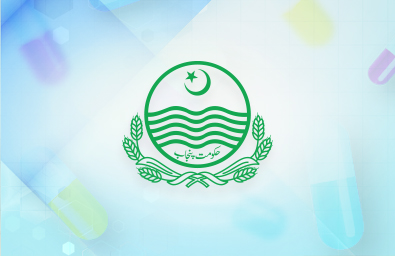Government of Punjab Streamlines Management of Drug LicensesApp Development

LMKT mapped and geo-tagged over 27,000 licensed POS of various drugs and medicines in Punjab. LMKT conducted a comprehensive survey in collaboration with Provincial Quality Control Board (PQCB) and the Chief Drugs Controller (CDC) to collect detailed data on the issuance and re-issuance of all categories of drug sale licenses in the districts of Punjab. The project was piloted in Lahore followed by the entire Province, which was divided in three zones—Central Zone, North Zone and South Zone.
0
Geo-tagged POS
0
Duplication in records removed
0
Geo-tagged POS
0
No. of Zones
0
Districts Covered
Challenge
Prior to the survey conducted by LMKT, P&SHD was facing serious hurdles related to the collection and management of data. The data was collected and entered manually, which resulted in duplications and errors. There was no central repository for the storage of authentic and accurate data. Furthermore, consolidated stock information of licensed sites was not available. Some sites were also missing or incorrectly reporting important information including business names, addresses, proprietors and their respective qualified staff (pharmacists). Existing information for all licensed sites had to be validated first and updated with correct data. According to Drug Rules (2007), only one license can be issued against a pharmacist resulting in a high probability of data duplication. Therefore, identification of redundant information and a recount of all issued, renewed and expired licenses was mandatory. The licensed sites were also not geo-tagged. All requisite categories as outlined by Drug Rules, 2007 for POS (pharmacies, chemists, medical stores, drug distributors etc.) needed to be verified for compliance to address discrepancies, if any.
Solution
P&SHD turned to LMKT’s expertise in GIS and mapping to ensure accurate data collection and geo-tagging of licensed distributors, pharmacies, chemists and medical stores in Punjab. LMKT utilized a customized version of its Workforce Management (WFM) solution for field surveys, data collection and geo-tagging. Accurate geo-tagging results were ensured by installing WFM on recommended mobile devices carried by field surveyors. The entire process of data collection and geo-tagging was conducted through LMKT’s proprietary solution requiring no additional GIS-based hardware or software solution. LMKT’s intelligent WFM solution significantly reduced data entry and survey times allowing the project staff to focus on data verification, quality and analysis.
The project territory was divided in three zones.
Central Zone: Sheikhupura, Faislabad, Kasur, Jhang, T.T. Singh, Chiniot, Nankana, Okara, Pakpattan, Sahiwal
North Zone: Attock, Rawalpindi, Jehlum, Gujrat, Gujranwala, Sialkot, Narowal, M.B. Din, Bhakkar, Hafizabad, Chakwal, Khushab, Mianwali, Sargodha
South Zone: R.Y. Khan, Bahawalpur, Lodhran, Multan, D.G. Khan, Layyah, Rajanpur, Vehari, Muzaffargarh, Khanewal.
Benefits
LMKT’s solution and services have significantly helped P&SHD in auditing licenses issued to POS sites in Punjab province. The data is now in a secure and manageable form, all controlled by P&SHD through a central repository. P&SHD has achieved noticeable time and cost savings through accurate and accessible information. Resultantly, P&SHD has now been able to improve its own data collection processes through LMKT’s real-time system.
Monitoring and Control
LMKT’s WFM has enabled Primary & Secondary Healthcare Department, Punjab to update its existing POS database with clean and accurate data—free of redundancies. This helps P&SHD in effectively keeping a check on drug distributers and pharmacies across the Province.
Geo-Tagging of Points of Sales (POS)
Over 20,000 POS sites that were surveyed in Punjab have been successfully geo-tagged. Using mobile phones with WFM installed, the location coordinates of all drug outlets were automatically collected. Automatic GPS logging of records through mobile phones has eliminated the need for separate devices and prevents incorrect location data to creep into the entire process.
Issuance and Re-issuance of Licenses
The solution has streamlined the issuance and reissuance of licenses across Punjab. Missing sites were added and incorrect information was updated after verification. From a scope of 30,000 points of sales, LMKT provided the data of 27,948 sites with Geo Tagging. The total valid sites found were 24,288 which contained 3,522 sites in Lahore and 20,766 sites rest of Punjab.
Data Collection in Remote Areas
WFM’s advanced form generating capabilities were used for offline data collection. The offline information is then periodically synced with a central server so that data collection can be carried out smoothly even in remote areas of Punjab where Wi-Fi and network coverage is poor. Through this offline data collection feature, teams can submit reports as soon as they are back online or in an area with Internet coverage. This enables P&SHD to consolidate both real-time and offline data seamlessly.
Compliance Reporting
LMKT also supplied compliance reports of POS across Punjab per Drug Rules 2007. These reports along with WFM will improve visibility and assist P&SHD in conducting effective audits.















